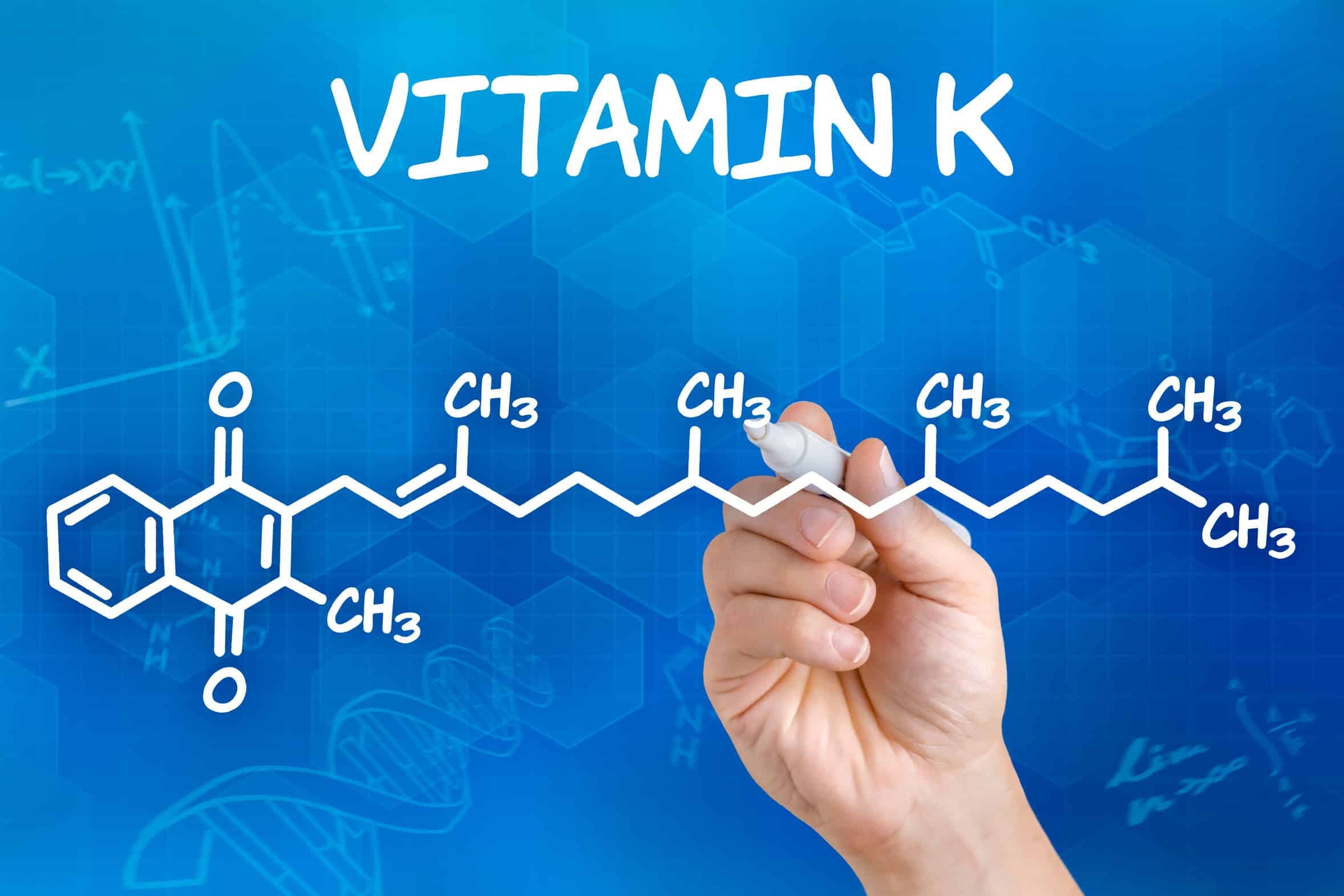Phylloquinone

Vitamin K or phylloquinone belongs to the fat-soluble vitamins and was discovered in 1929. The Danish researcher Henrik Dam received the Nobel Prize for Medicine in 1943 for this discovery. Basically, phylloquinone can be divided into three different structural formulas. Phylloquinone 1, also known as phylloquinone, is involved in photosynthesis in plants, for example. Phylloquinone 2 (menaquinone) is produced by some bacterial strains in the human intestine, while phylloquinone 3 (menadione) is a synthetically produced substance. This article deals exclusively with the structural formulas menaquinone and phylloquinone. Phylloquinone is responsible for controlling blood clotting in the human body. However, it also supports bone formation and may even protect against cancer. In addition, it prevents the deposition of calcium plaque in the arteries and thus keeps our vessels clean.
It is mainly found in green vegetables. The most important suppliers are spinach, parsley, Brussels sprouts, and chives, but the proportion is also quite high in lettuce, tomatoes, beans and peas. Phylloquinone has above-average heat stability, so losses during cooking are low. However, it is relatively light-sensitive, so that light-protected storage of the corresponding foods is recommended. Phylloquinone (menaquinone) plays only a minor role in vitamin supply; it is produced exclusively in the human intestine and cannot be supplied with food. The recommended daily dose of phylloquinone for adults is between 60 and 70 micrograms. Example: Just 10.0 grams of parsley or 25.0 grams of Brussels sprouts would cover the daily requirement.
Phylloquinone and its importance for the body
According to current studies, an overdose of phylloquinone has no negative effects. In very rare cases, however, allergic skin reactions have been observed. Also, a deficiency hardly occurs in this country, only persons with diseases of the digestive system or liver should take special preparations with phylloquinone to exclude an undersupply. Symptoms of a deficiency would be slowed blood clotting, an increased tendency to bruising and an increased bleeding tendency.
What disadvantages can vitamin K have in skin care?
Vitamin K is generally safe for use in skin care and has few known side effects. Most people tolerate it well.
However, it is possible that some people may experience allergic reactions or skin irritation. If you have sensitive skin or are prone to skin reactions, you should try this product on your calf before using products containing vitamin K to make sure you are not allergic to the vitamin.
It is also important to note that the use of vitamin K in high doses and for prolonged periods can cause blood clotting to be disrupted. However, this is usually only the case when taking vitamin K preparations in high doses and does not usually occur when using cosmetics that contain vitamin K.
Fact Sheet Phylloquinone (Menaquinone, Vitamin K)
Alternative names: Farnoquinone, 2-methyl-3-difarnesyl-1, 4-naphtoquinone, 2-methyl-3-phytyl-1, 4-naphthoquinone.
CAS number: 84-81-1(menaquinone), 84-80-0 (phylloquinone)
Nature: yellow liquid
Solubility: fat soluble
Physiological function: synthesis of prothrombin, blood coagulation, bone metabolism, photosynthesis
Vitamin K in cosmetics
Plant phylloquinone is an excellent ingredient for skin care creams and especially suitable for those products used against couperose, spider veins and rosacea. Dark circles under the eyes, which are very often caused by a more or less pronounced weakness of the superficial capillary system of our skin, can be effectively alleviated with skin care products containing vitamin K. In combination with a high-quality base cream, phylloquinone is also an ideal addition to daily day and night care.
It can also be used in anti-ageing products as it can help improve skin elasticity and reduce the appearance of fine lines and wrinkles.
In addition, vitamin K can also be used in skincare products to help with certain skin conditions such as rosacea or couperose, as it can help reduce redness.
We like to work with this phylloquinone-containing raw material:
| Tradename | INCI | Supplier | Remarks |
|---|---|---|---|
| Kiwi Fruit Juice Powder | Actinidia Chinensis (Kiwi) Fruit Powder | Shaanxi Guanjie Bio-technology Co., Ltd. | |
| Phylloquinone | Phylloquinone | Nutrilo GmbH | |
| Vitamin K2 MenaQ7 Crystals P2000 | Menachinon | Denk Ingredients | |
| Vitamin K | Phylloquinone | AtoZ Nutrition | |
| Dry Vitamin K1 5% | Phylloquinone | DSM | |
| Dry Vitamin K1 1% | Phylloquinone | BASF |
Conclusion: the rather unknown vitamin provides valuable services
Phylloquinone is not even known to most people, yet it is vital for our health and is also a valuable ingredient in cosmetics for high-quality and effective care products. Since it is present in very large quantities, especially in green vegetables, deficiency symptoms are extremely rare, and overdoses due to increased consumption of vitamin-containing foods or special dietary supplements have hardly been detected so far. Overall, phylloquinone is therefore characterized by consistently positive properties, also in cosmetics.
For further information, product or concept ideas, please contact us.
Literature:
Vitamine; Hans K. Biesalski, Jürgen Schrezenmeir, Peter Weber, Hubert E. Weiß, Thieme-Verlag
Nabiee R, Dubois B, Green L, Sharma A, Wong SF, Montazeri Aliabadi H.PLoS One. 2018 Oct 5;13(10):e0204531